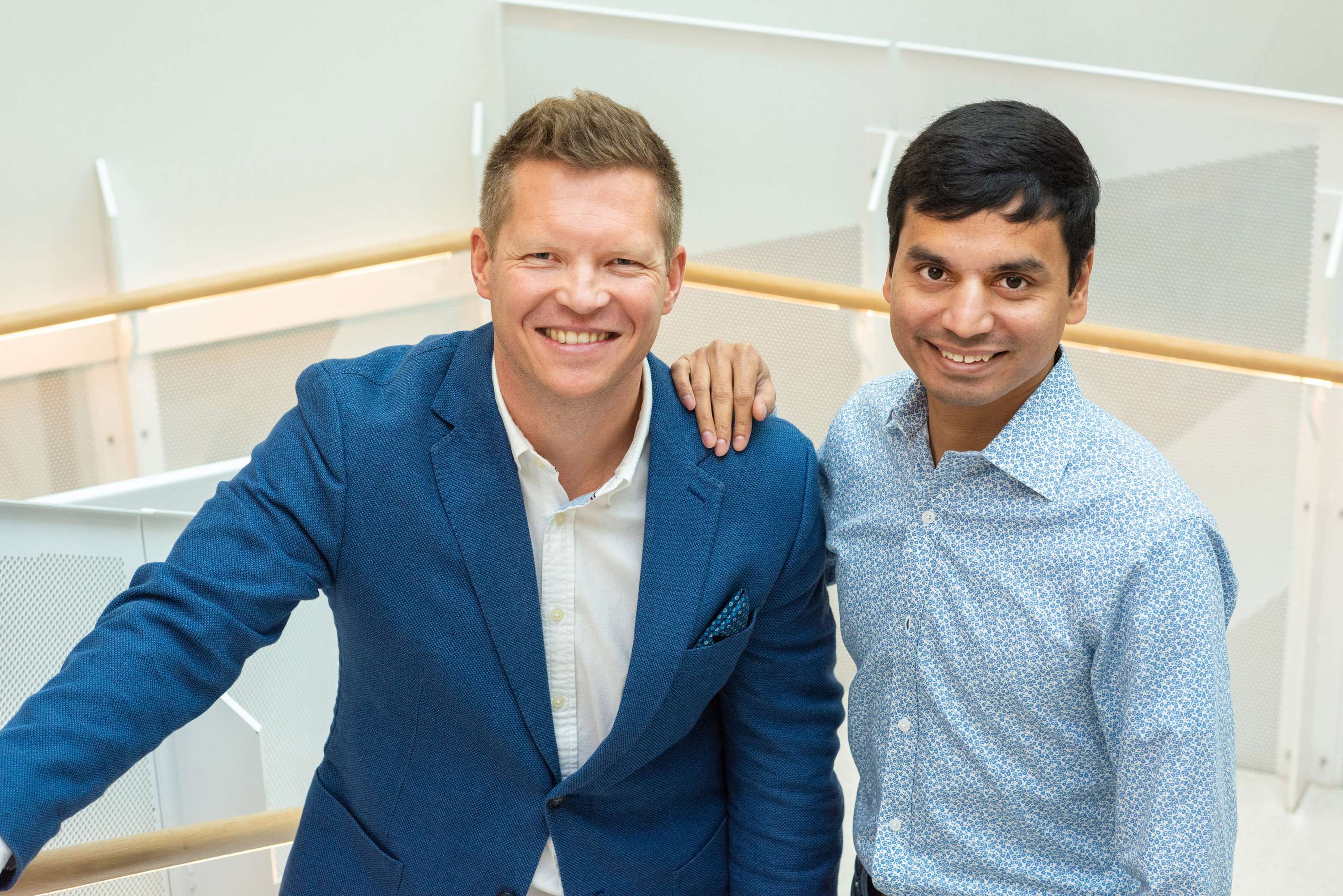ESN Cleer CEO Leopoldt de Bruin and Professor Sharath Sriram.
A Melbourne startup has developed a life-saving hand-held device to predict heart failure based on saliva that could be available to the public within two years
The device uses nano-sensors on a diagnostic stick to measure heart disease biomarkers from saliva to accurately predict the risk of heart disease, failure or heart attack, then warn users via an app.
The startup, ESN Cleer, has signed a deal RMIT University and the Innovative Manufacturing Cooperative Research Centre (IMCRC) to research and develop the device for pilot manufacture and bring it to market, hopefully in 2021.
ESN Cleer CEO Leopoldt de Bruin said 400 million people suffer from cardiovascular disease globally, but only 16% of cases are due to genetic traits. Cardiovascular disease currently accounts for nearly one-third of all global disease deaths each year.
“This underlines how much room there is to improve on screening and prevention, which is where this device could have such an impact,” he said.
Professor Sharath Sriram, Co-Director of RMIT’s Functional Materials and Microsystems Research, said this was the first portable heart disease test was a big step forward in technology for screening.
RMIT’s MicroNano Research Facility developed the sensing technology, validated in the lab to measure biomarker concentrations a thousand times more precisely than levels in human body fluids.
“Often, blood tests are only conducted after a heart failure episode. Such reactive testing is too late, leaving people with debilitating illness or leading to deaths,” he said.
“Prevention is always better than cure, which is where this technology comes in, adding accurate prediction to the mix.”
The IMCRC is providing matching funding with ESN Cleer in a $3.5 million project investment and the swabs will be manufactured in Australia
The system will also feature incentives to encourage users to take preventative actions, while machine learning algorithms used to assess results will further improve system accuracy over time.
De Bruin, believes the device will also be used to predict cancer risk down the track.




















Trending
Daily startup news and insights, delivered to your inbox.